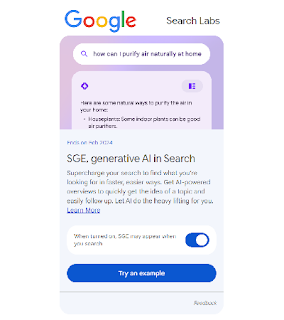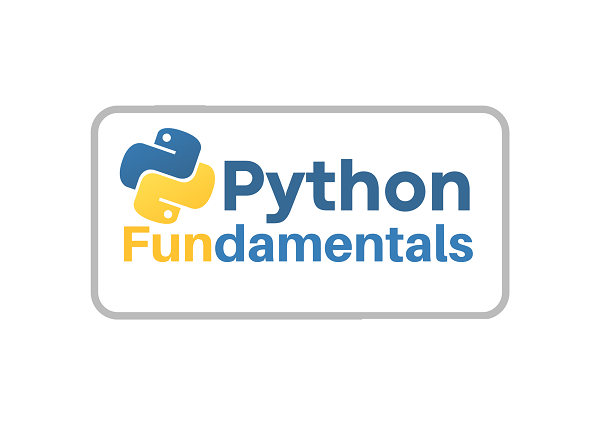How Will AI Impact the Future of Healthcare?
Explore
how AI is transforming the healthcare industry and its future impact. Learn
about the benefits, challenges, and ethical considerations of AI in healthcare.
Artificial Intelligence or AI is transforming the way we live and work. In recent years, AI has emerged as a game-changer in the healthcare industry, with the potential to revolutionize the way we diagnose, treat, and prevent diseases.
With the increasing amounts of medical data being generated every day, AI is poised to become a crucial tool in medical research, diagnosis, treatment, and patient care.
With the rise of AI, healthcare providers, and researchers can use machine learning algorithms to analyze large data sets
and make more informed decisions. AI is helping doctors, nurses, and other
healthcare professionals to deliver better care, reduce errors, and improve
patient outcomes.
In this article, we will explore the ways in which AI is
already impacting healthcare and how AI will impact the future of healthcare.
1. Improved
Diagnosis
One of the most significant ways in which AI is already transforming healthcare is through improving the accuracy and speed of diagnosis.
AI algorithms are trained on vast amounts of medical data, including patient histories, medical images, and lab results.
By analyzing this data, AI systems can identify patterns and correlations that may be missed by human doctors.
This can lead to faster and more accurate diagnoses, which can be
especially critical in emergency situations.
For example, AI-powered systems have already shown great promise in the detection of cancer.
Researchers at Google Health have developed an AI algorithm that can detect breast cancer in mammograms with greater accuracy than human radiologists.
Other AI algorithms have been developed to
detect lung cancer and skin cancer.
2. Personalized
Treatment
Another area in which AI is poised to have a significant impact is in personalized treatment.
AI algorithms can analyze a patient's
medical history, genetic makeup, and lifestyle factors to develop treatment
plans tailored to their specific needs. This can lead to more effective
treatments with fewer side effects.
For example, AI systems have been used to develop personalized cancer treatments that target specific genetic mutations in a patient's tumors.
Other AI algorithms have been developed to predict how a
patient will respond to a particular drug, allowing doctors to choose the most
effective treatment for each patient.
3. Personalized
Medicine
One of the most significant impacts of AI on healthcare will be in the area of personalized medicine.
Personalized medicine is an approach that tailors medical treatments to individual patients based on their unique genetic makeup, lifestyle, and environmental factors.
AI can help healthcare providers to analyze large data sets and identify patterns that can help predict an individual's risk of developing certain diseases.
AI can also help
to identify the most effective treatments for each patient based on their
genetic profile, medical history, and other factors.
4. Medical
Imaging
Another area where AI will have a significant impact on healthcare is medical imaging.
Medical imaging techniques, such as CT scans, MRI, and X-rays, generate vast amounts of data that can be difficult for doctors to analyze.
AI can help to analyze these images and identify patterns that may be missed by human analysis.
This can help doctors to detect diseases
earlier, improve diagnosis accuracy, and reduce the need for invasive
procedures.
5. Virtual
Nursing Assistants
AI can also help to improve patient care by providing virtual nursing assistants.
These virtual assistants can provide patients with personalized care and support, such as reminders to take medication, help with mobility, and monitoring vital signs.
This can help to reduce the workload on
nurses, improve patient outcomes, and reduce healthcare costs.
6. Predictive
Analytics
AI can also help healthcare providers to predict the likelihood of certain diseases and conditions.
By analyzing large data sets, AI can identify patterns that can help predict an individual's risk of developing certain diseases.
This can help healthcare providers to develop personalized
prevention strategies and help patients to take proactive steps to prevent
disease.
7. Drug
Development
AI can also help to accelerate the drug development process. Drug development is a long and expensive process that involves extensive testing and analysis.
AI can help to identify potential drug candidates, predict their effectiveness, and identify potential side effects.
This can help
to reduce the time and cost of drug development and bring new treatments to
patients faster.
8. Remote
Patient Monitoring
AI-powered remote patient monitoring systems are already being used to monitor patients' health in real-time outside of hospitals and clinics.
These systems can track patients' vital signs, medication adherence, and other health data, alerting healthcare providers if there are any concerns.
This can help patients manage chronic conditions and stay out of hospitals,
reducing healthcare costs and improving patient outcomes.
For example, AI-powered systems have been developed to monitor patients with heart disease, diabetes, and other chronic conditions.
These systems can detect early warning signs of complications and provide
patients with personalized recommendations for lifestyle changes or medication
adjustments.
9. Streamlined
Administrative Tasks
AI algorithms can also be used to streamline administrative tasks in healthcare, reducing the burden on healthcare providers and freeing up more time for patient care.
For example, AI-powered systems can automatically
schedule appointments, manage medical records, and process insurance claims.
10. AI Ethics and Privacy
One area that requires attention as AI is integrated into healthcare is ethical and privacy considerations.
AI algorithms must be
developed with consideration for ethical principles and patient privacy to
ensure that patients' data is being used ethically and responsibly.
Summary:
AI is already transforming healthcare in many ways we never thought possible, and the potential for further advancements is enormous.
By analyzing large data sets, identifying patterns, and predicting outcomes, AI can help healthcare providers to deliver better care, reduce errors, and improve patient outcomes.
However, AI must be developed and implemented with consideration for ethical principles and patient privacy to ensure that its use is both responsible and beneficial.
The future of healthcare is exciting, and AI will play a significant role in shaping it.




Comments
Post a Comment